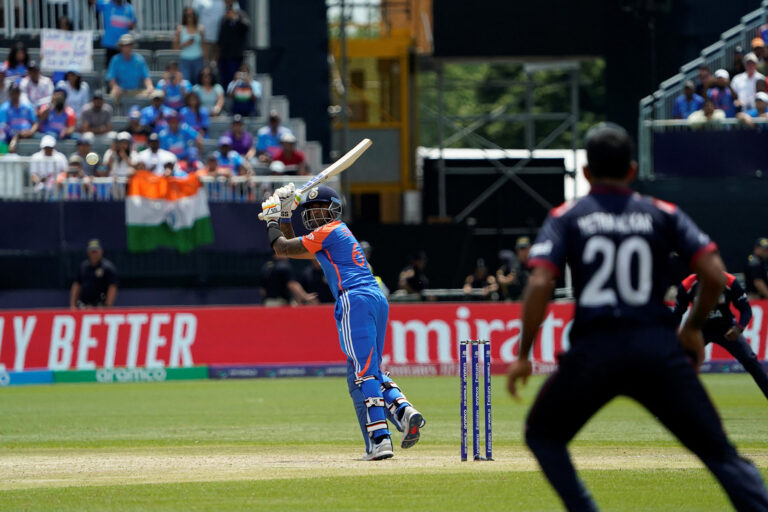How Cricket Teams Navigate International Competitions and Tournaments
Gold365, Play99exch: Cricket teams around the world undergo rigorous preparation in anticipation of international competitions. Training sessions focus on refining skills, enhancing tactical awareness, and building team cohesion. Coaches emphasize the importance of mental fortitude and physical fitness to withstand the demanding challenges of high-stakes matches. In addition to on-field practice, teams analyze their opponents’ strengths and weaknesses, strategizing ways to capitalize on opportunities and neutralize threats.
The meticulous planning for international competitions extends beyond honing cricketing abilities. Teams pay close attention to factors such as travel logistics, acclimatization to different time zones, and nutrition plans to optimize player performance. Sports psychologists work with the players to develop coping strategies for handling pressure situations that often arise in intense matches. By prioritizing holistic preparation, cricket teams aim to enter international tournaments with a well-rounded approach that enhances their chances of success.
Identifying Key Players for International Tournaments
When it comes to identifying key players for international tournaments, teams often look at various factors to determine who will make the biggest impact on the field. Performance in previous tournaments, consistency in form, and adaptability to different playing conditions are some key aspects that are considered. Coaches and selectors also take into account the player’s mental strength and ability to handle pressure situations, as these qualities are crucial in high-stakes matches.
Another important aspect in identifying key players is analyzing the strengths and weaknesses of the opposition. Understanding the style of play of rival teams helps in selecting players who can counter their tactics effectively on the field. By closely studying the opponents and assessing their key players, teams can strategize and identify which players from their own squad will be best suited to exploit the weaknesses of the opposition during international tournaments.
Strategies for Team Selection in International Competitions
When it comes to selecting the ideal team for international competitions, one of the key factors that selectors consider is the players’ current form. Performance in recent matches, both domestically and internationally, plays a crucial role in determining the composition of the squad. Selectors closely monitor players’ statistics, consistency, and overall impact on the team before making their final decisions.
In addition to current form, selectors also take into account the specific skill sets and versatility of players. A well-rounded team with a mix of specialists in various roles is essential for success in international competitions. It’s important to strike a balance between experienced players who bring leadership and strategic insight, and emerging talents who can inject energy and enthusiasm into the team. Ultimately, the goal is to create a cohesive unit that can adapt to different situations and perform under pressure on the international stage.
Training and Conditioning for International Matches
Preparation for international matches involves rigorous training and conditioning programs tailored to enhance players’ physical and mental endurance. Players engage in strength training sessions to build muscle mass and improve their overall fitness levels. Additionally, intense cardiovascular workouts are crucial to boost stamina and agility on the field.
In order to excel in international competitions, players also focus on specific skill drills to hone their cricketing techniques. Batting, bowling, and fielding drills are meticulously designed to sharpen players’ reflexes and precision. Moreover, mental conditioning exercises such as visualization and mindfulness practices are incorporated to help players maintain focus and composure during high-pressure situations.
Developing Game Plans for International Tournaments
Developing game plans for international tournaments is a critical aspect of a team’s preparation. Coaches and strategists meticulously analyze the strengths and weaknesses of their own team as well as those of their opponents to formulate a solid plan of action. They focus on creating strategies that capitalize on their players’ strengths and exploit the weaknesses of the opposing teams. This requires a deep understanding of the game, individual player capabilities, and the ability to anticipate and adapt to the unpredictable nature of international competitions.
Additionally, game plans involve detailed tactical and positional strategies that aim to outmaneuver the opposition and secure a competitive edge. Coaches work closely with players to ensure that they understand their roles within the team structure and can execute the game plan effectively under high-pressure situations. Flexibility is also crucial, as teams must be prepared to adjust their game plans on the fly in response to changing circumstances during matches. Developing a coherent and well-thought-out game plan is essential for success in international tournaments, where every decision and action can have a significant impact on the outcome of the game.
Adapting to Different Playing Conditions in International Competitions
Teams competing in international competitions often face the challenge of adapting to a wide range of playing conditions. From the slow, turning pitches of the subcontinent to the bouncy tracks of Australia, players must quickly acclimatize to the conditions to give their best performance. This requires a keen understanding of the nuances of different pitches and environmental factors that can impact the game.
One key aspect of adapting to various playing conditions is the ability to adjust game strategies on the go. Teams must be flexible in their approach, ready to tweak their game plans based on the conditions they encounter. This could mean altering bowling tactics, changing batting techniques, or even modifying fielding placements to suit the specific demands of the playing surface. Successful adaptation to different conditions can often be the difference between victory and defeat in high-stakes international matches.
Managing Player Fatigue during International Tournaments
During international tournaments, managing player fatigue is a critical aspect that can significantly impact a team’s performance. The rigorous schedule of matches, travel demands, and intense training sessions can take a toll on the physical and mental well-being of players. To mitigate fatigue, teams often employ rotation strategies, ensuring that players get adequate rest between matches to avoid burnout and minimize the risk of injuries.
Moreover, proper nutrition and hydration play a crucial role in combating fatigue during international tournaments. Teams work closely with nutritionists and support staff to develop personalized dietary plans for players, tailored to meet the high energy demands of competitive matches. Adequate rest, recovery sessions, and sleep management are also prioritized to help players stay fresh and alert throughout the tournament, thereby enhancing their overall performance on the field.
Analyzing Opponents in International Matches
Analyzing opponents in international matches is a crucial aspect of a team’s preparation for any tournament. Understanding the strengths and weaknesses of the opposing team allows for the development of a strategic game plan that can exploit their vulnerabilities and neutralize their strengths. Coaches and analysts often study previous matches, playing styles, and key players of the opponents to gain insights that can give their team a competitive edge.
In addition to analyzing the technical aspects of the opponents, teams also focus on the psychological factors that may come into play during the match. Understanding the mindset of the opposing team, their typical reactions to certain situations, and their level of confidence can help teams anticipate their moves and adapt their own strategies accordingly. This holistic approach to analyzing opponents not only enhances a team’s tactical preparedness but also fosters a sense of confidence and mental strength among the players.
Handling Pressure Situations in International Competitions
In the high-stakes environment of international competitions, handling pressure situations is a crucial aspect of a team’s success. Players must learn to maintain composure and focus under extreme pressure, whether facing a challenging opponent or a critical game moment. The ability to perform at their best when the stakes are at their highest separates good players from great players.
Coaches play a pivotal role in preparing players to handle pressure situations effectively. By simulating high-pressure scenarios in practice sessions, coaches can help players build mental resilience and develop strategies to stay calm and focused during crucial moments in a match. Additionally, fostering a supportive team environment where players can rely on each other for encouragement and guidance can boost their confidence and ability to perform under pressure.
Recovering from Losses in International Tournaments
After facing a defeat in an international tournament, it is crucial for a team to quickly regroup and refocus. The immediate aftermath of a loss can be emotionally challenging, but it is essential for the players and coaching staff to analyze what went wrong objectively. This analysis should not only focus on individual performances but also on team strategies and overall game plan execution.
Moreover, addressing any issues that may have contributed to the loss is key to bouncing back effectively. This could involve revisiting training routines, tweaking tactical approaches, or even making necessary changes to the team lineup. The emphasis should be on learning from mistakes and using them as valuable lessons to strengthen the team’s performance moving forward. By maintaining a positive mindset and a proactive approach to recovery, teams can turn setbacks into opportunities for growth and improvement.







